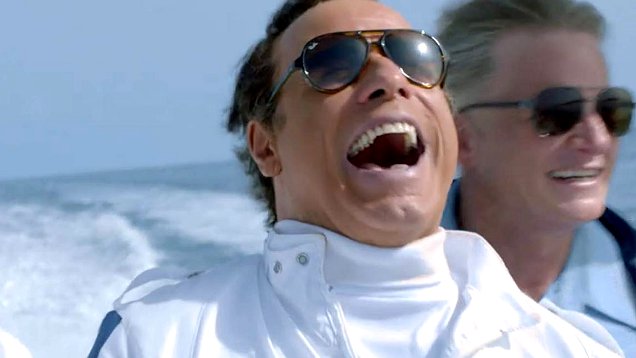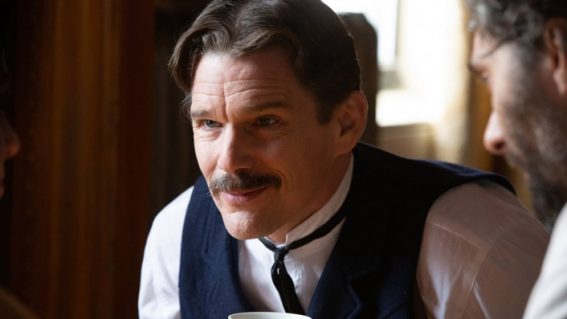John Travolta’s career hits rock bottom with the true crime embarrassment Speed Kills

If you thought Battlefield Earth or Gotti was the worst John Travolta’s career could get, think again. Critic Travis Johnson has some words to say about the true crime embarrassment Speed Kills, based on the life of speedboat race and builder Donald Aronow.
Anyone who thought that Gotti marked the nadir of John Travolta’s career is in for a rude awakening – that is, if they even notice the arrival of true crime embarrassment Speed Kills, which slunk quietly into digital release last week.
Based on the life of speedboat racer and builder Donald Aronow, rebranded here as Ben Aronoff, Speed Kills is a confessional biography in the Goodfellas/Casino/Blow/American Made model, only woefully inept. This is a film that opens with a cameo from disgraced character actor Tom Sizemore and gets worse from there, offering up a bullet point journey through the Aronow’s shady career selling high powered speedboats to both Miami drug smugglers and the cops who are tasked with corralling them, along the way romancing Katheryn Winnick’s polished supermodel after quietly shelving his first wife, played by Jennifer Esposito.
The film is carefully circumspect in regards to exactly how mobbed up Aronoff is, but he does get leaned on to “do his part” by no less a figure than Jewish crime lord Meyer Lansky (James Remar in what would be the film’s weirdest casting, if Matthew Modine didn’t show up later as George H.W. Bush). Instead, he’s framed as a kind of bullish all-American go-getter whose entrepreneurial zeal might see him get his hands a little dirty from time to time, but whose pursuit of trophies and a trophy wife is thoroughly commendable.
It’s all rather ugly, both ethically and aesthetically. The whole thing feels like an early ‘90s TV movie: the sets are cheap, the green screen effects risible, the occasionally stylistic flourishes – mainly sudden freeze frames – perfunctory and tacked on. In terms of narrative, the film is particularly graceless, abutting scene against scene with no connective tissue or flow. It’s also remarkably pedestrian. You would think that there might be some high drama to be milked from a story of speedboat racing and drug smuggling, but it seems to have eluded first time director Jodi Scurfield and screenwriters Paul Castro and John Luessenhop, adapting Arthur J. Harris’ true crime book of the same name.
Travolta’s legendary charisma has deserted him for this outing, and while the film struggles to position Aronoff as a straight-talking alpha male ladies man, he comes across as boorish, arrogant, and smug. Nobody else in the ensemble fares much better. The women probably come off best simply because they’re given so little to do that the hammy script can’t deal them too much damage. Everyone else is either phoning it in (Remar is barely awake), chewing the scenery (Kellan Lutz as Robbie Reemer, Aronoff’s rival), or just bizarrely miscast (again, Matthew Modine is Bush Senior).
Weirdly, there is a Speed Kills virtual reality experience available that acts as a kind of companion piece to the film proper. Whether being thrust directly into John Aronoff’s lurid yet uninspired cinematic world improves the experience is difficult to say. Certainly, the fact that the VR version is only an hour long, as opposed to the feature’s hundred-odd minutes, holds some appeal.
Speed Kills isn’t just bad, it’s baffling. There’s a skerrick of a decent idea here, but it’s executed in the most slapdash and careless manner imaginable. Travolta completists might feel duty-bound to give it a spin, and there’s a certain enjoyment to be wrung out if the film’s sheer, unrelenting, amateur hour awfulness, but even measured by the “so bad it’s good” metric there are more entertaining options out there.

















